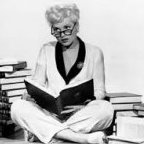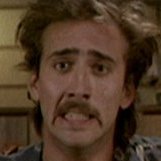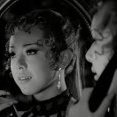Leaderboard
Popular Content
Showing content with the highest reputation on 01/14/19 in all areas
-
4 pointsI was looking through the musicals available on Amazon Prime and this one caught my eye. I saw the Rodgers & Hammerstein in all caps, but this musical was unfamiliar to me. Not that I'm a R&H expert, but I think almost everyone is familiar with their hits like Sound of Music, South Pacific, King & I, and Oklahoma. Plus, Flower Drum Song featured an almost all Asian cast, which I didn't expect for a movie musical from that time period. Yeah, it's dated , but overall I thought the music was alright, almost kitschy. Never knew I Enjoy Being a Girl was from this musical. I wish the main leads, Mei Li and Wang Ta, were more interesting - they were both rather bland and I have no idea why or how they fell in love. Did Wang Ta even have a song? And what was the point of Helen, other than to throw a wrench into Mei Li and Wang Ta's relationship? I would've been happy with more Linda, Sammy, and Wang Ta's little brother.
-
3 points
-
3 points100% I actually went to see it yesterday on Paul's recommendation. I definitely laughed in the wrong places. It reminded me of The Meg in that regard.
-
3 pointsI must agree with pretty much everything here. I did not buy Ta and Mei Li's romance at all. I could buy the romance between him and Linda. I heard Mei Li and Ta saying the words to each other, but I didn't see any emotion between either of them. I also didn't know about the "I Enjoy Being A Girl" song, and I really liked that piece. I also really liked the dance with Helen. I'm sure we all could go into a whole diatribe about the gender politics but I'll set that aside for now. However, I was thinking that this movie wasn't too bad on the racism square, and I nearly did a literal pearl clutch in those last five minutes with Mei Li's "inspiration" for how to deal with her betrothal to Sammy. Oh my!
-
3 points
-
3 pointsI'll also add in Once Upon A Time In The West and The Great Silence.
-
2 pointsI also didn't think it was as racist as I was expecting it to be. Seriously, I was bracing for super racist moments. I think the most uncomfortable I felt was when they started doing chop sueeeeeey for one of the songs? I think System of a Down did it better
-
2 pointsYea, I joked before I started that I assumed it would be, and it certainly isn't great by any means -- just way too many stereotypes that probably set the course for what people think about Asians for years afterward -- but you're right, it's not particularly racist. There is some weird 'other'ing of immigrants in there (like they never heard of a bank or whatever; immigrant refugees aren't automatically uncivilized fools). But still generally I am enjoying the film so far (I'm only halfway through as of yet). The cast is all so very cool, that's what is standing out to me.
-
2 points@Cameron H., you're a real cold cat! Sorry about flaking on Friday, if anyone turned up on Rabbit. I'm resigning from hosting unless it's my pick. As for this movie, I'm still working through it so I will refrain.
-
1 pointWang Ta danced with Helen and I'm pretty sure he sang briefly but never soloed. I think you hit the nail on the head my main problem with the movie. I get that Mei Li fell in love at first sight, Linda loved him for his wealth, and Helen had been crushing on him for years. Yet, outside of Linda I don't really see why that is. Wang Ta is handsome, smart, and rich but he is kinda blah character wise. If he was a bit more charming or charismatic I could see why Helen had been waiting for him or why Mei Li instantly feel in love with him. His falling for Mei Li is even more of a head scratcher. He liked her but then to jump to I must be with her, I didn't fully buy it. Also Sammy ends up with Linda and Wang Ta ends up with Mei Li but no love for Helen? Poor Helen.
-
1 pointAgain no reason to complain but I found it funny that in a movie about Chinese people there was only one fully Chinese main cast member, Benson Fong who played Master Wang Chi. Nancy Kwan is half Chinese, Juanita Hall is African American and the rest of the leads are Japanese. However, this is an all Asian cast with only a few white background extras in the restaurant scenes and one speaking part for a Caucasian actor who plays a mugger. This is also 1961 a time when John Wayne was Genghis Khan and Mickey Rooney was Mr. Yunioshi. The whole idea of an all Asian cast at that time and the movie isn't super offensive is mind blowing. Honestly good on this movie.
-
1 pointWhoa there, Nelly! Actively holding someone down while they get their face cut up isn't exactly nothing. In terms of a full-throated denial of the death penalty by Little Bill, in the beginning Alice (I'd say, depicted with what seems like a blood-lust), asks if he's going to hang them. And that's when he says he's going to whip them, which isn't no small thing. And, as what would have been called in more stereotypical westerns, bounty hunters show up for the reward, Little Bill keeps calling them the much less dignified term, "assassins". This seems a lot more complex in deconstructing why it's offscreen than I would have gone. The important part of Ned's death is Will's reaction shot to it. And the slow drawn out, starting to drink shot requires a somewhat lengthy delivery. If they were to show Ned's death, they'd be showing and the recapping what you just saw. Something about that redundancy doesn't play well in my mind. My take on that feels like a much darker one - change brothel to a frat house, cowboys to frat bro's, and the slicing, well, to a frat-party rape. I feel like the film does come down hard on Alice, but in the sense of someone taking someone else's tragedy and making it their cause, despite the victim's wishes. Hence above, me wondering if the movie intended for us to infer Alice exaggerated the wounds when telling patrons about the reward or if it purely magnified on its own in retelling. Which, given the analogy (which I think was supposed to be present, at least by the 1990's filming, if not the original 1970's script), is... well, it's something. Though, in what happened in the film, it does seem like a very direct line between, not having a deterrence in physical punishment does not really discourage something like that happening again in the town, which does put all prostitutes at risk (i.e. Alice, though not a direct victim, is hurt by it.) If asked what I think happen based on what the film provides, both happened (she exaggerated and then it was exaggerated in retelling). I could go into why, but the short version is the parallel with how the stories of the shoot-outs got mythologized (and also the sense of desperation to get outside help by lying about how much money they have for the reward). Exaggerated after it happened, and then exaggerated even more in later re-tellings. The issue the analogy does highlight that does give the greatest flaw in the premise of the script is Delilah. I can see her wanting to be done with the whole thing and wanting to move on from it. I have a hard time with how the movie made it feel like she basically forgave the holder and just came across so much of a naif. But admittedly, I don't have a lot of first or second hand accounts on the matter to draw from to know how far-fetched that is or not.
-
1 pointYeah. I basically was expecting a pretty dated portrayal of Chinese immigrants, and probably some yellowface in the casting. It exceeded my expectations. But the last five minutes...
-
1 pointSo you're suggesting that when Munny sees Delilah for the first time, he should say that he thought she was supposed to be more disfigured? I think this is partially handled by Munny complimenting her and telling her she looks better than he does. But if you're saying that Munny would see this girl with major permanent facial scars and feel manipulated into helping a not-that-badly-disfigured person, I don't quite understand that. I never got the feeling that the exact extent of the injuries were a crucial selling point in getting Munny involved. To the question of why are Ned's kidnapping and death both done off-screen, I see different reasons for each. My guess is that the kidnapping didn't seem like it needed to be shown, since Ned was unarmed, having given his rifle to Munny and the Kid, so it doesn't seem absurd that he could be captured by a half-dozen armed men. And secondly, it gives the audience a small shock to see that Little Bill has him. But again, my overall feeling is that it's not a hugely necessary scene. However, the reason they don't show the death is to put the audience in the same state of disbelief as Munny when he's told about it. Particularly after the extent of the injuries to Delilah got exaggerated, both Munny and the audience have to think that maybe this is an exaggeration too, and that Ned may be just very badly injured. Secondly, both Munny and the audience are drawing on their history: Munny has gotten into and out of scrapes with Ned for decades, so he has a hard time believing Ned could be dead. Meanwhile, the audience has seen Westerns for decades and has the instinct that the narrative should be that Munny has to have someone to save, so Ned must be alive for Munny to save. In telling and not showing, both the audience and Munny are made to think that this is not the way that this is supposed to go, and it must be a lie. As far as everything else in your post, you're mostly hitting on the reasons why I really like this film. As to what the film is saying about the death penalty, I would say it's pretty definitively against it, but that's just another question about this film that's in the eye of the beholder. Sure, the "protagonists" do successfully murder the two perpetrators, but there's no glory in it whatsoever, as one guy slowly bleeds to death so awfully that even Munny asks for mercy on his behalf, and the other guy is killed while taking a crap. While it is technically what they set out to do, there's absolutely no victory in it. So does it wind up supporting the murder of those men? I would say no. To your point about whether the bounty was justified and Delilah's feelings about it, I think the film comes down pretty harshly on Strawberry Alice. She and brothel owner Skinny are shown as two sides of the same coin. While convention would prime us to think that Strawberry Alice is being a better advocate on Delilah's behalf than Skinny, the reality is that they both disregard Delilah's feelings the same amount. I don't know if this is meant to be seen as political commentary, but certainly one could see Skinny as the pro-corporation point of view, with Alice representing the type of union leader who fights for personal victories instead of for the actual members. (So then is Unforgiven anti-union? Again, eye of the beholder!) I think this is what makes the film so great! How are we supposed to feel about these characters? Is there a single character that is all good? How many are all bad? The fact that it so thoroughly eschews the white hats and black hats of classic Westerns is what makes it such a prime example of the Revisionist Western.
-
1 pointThe crab thing (played by John Rhys Davies) is for sure the best character. I wanted it to have better music cues. I said on Twitter that they should've played Cher's HALF BREED while he rose up on the leviathan. No one else thought it was funny. WHY DID JULIE ANDREWS AGREE TO THIS? Does Warner have something on her?
-
1 pointI am SO excited for the Cellular ep. I unironicially love that movie. I think it's a legitimately fun movie. Of course there's plenty to make fun of too
-
1 pointThe couple next to me when I saw it were laughing SO hard during some parts that I couldn't help but laugh as well, and during the entire war scene the three of us were just cracking up. I mean literally crab people vs mermaids is the funniest shit I've ever seen.
-
1 pointI somehow missed this being picked for the week. I'm going to watch it when I get home and refamiliarize myself with it. But I have some THOUGHTS on R&H and this musical. Again, want to revisit it before I actually comment.
-
1 point
-
1 pointGo with Clint's three with Sergio Leone. They are about the best of the bunch. The original Django movies are pretty good too
-
1 point
-
1 pointYea, and I did note that too - in that the characters, all of them, seem to be given that depth. The evil cruel sheriff has some noble goals (to retire in peace, to keep the city safe), for example. Most characters have all these sides, and I think that is probably the best part of the writing in Unforgiven. Nobody is one-dimensional. However, I did feel like they were all still tropes, basically. I do think The Searchers was a little subversive, esp. in making John Wayne unlikable and rude. I guess though the question becomes why is 'subversive' always seen as a good thing? Black Panther was indeed engaged on the topic of race, actually. Very much so on the level of the others (I haven't seen them all, but from what I have). I would say BP is quite subversive both on the micro level of its story (about an African race deciding how to best interact with the outer world) and the macro level of the film's existence.
-
1 point
-
1 point
-
1 point
This leaderboard is set to Los Angeles/GMT-07:00
-
Newsletter
















